If your image of Japan is a country with vending machines everywhere, you have got it spot on. It is practically impossible to walk more than 50m in a Japanese city and not walk past a vending machine.
Can you spot all five vending machines in this photo? And this photo is not even the city centre.
I don’t know how it is profitable to have more vending machines than pedestrians on a given street, but I don’t complain. It’s great that you don’t need to be organised! You just leave your house – even during the boiling hot summers of Osaka, even with two young children, or even with a husband who, as soon as your front door closes, all of a sudden absolutely must have a cup of coffee. You know that you do not need to go for more than one minute until you can quench your thirst (or caffeine addiction). In fact, in our building, all you need to do is to take the lift down, and find the vending machine on the ground floor, or alternatively use the three right outside the building.
It is not just in busy city centres, train stations, children’s play areas or apartment building foyers but also more tranquil places that an abundance of vending machine can be found. Temple courtyards, important historical sights like the Golden Pavilion in Kyoto and even beautiful sights of nature like the top of Mount Fuji are infested with vending machines. I don’t know about you but I feel that’s just wrong! Some places should just be picturesque places or nature or history without a drinks machine ruining the perfect shot for your Facebook profile picture, Instagram or your blog. If you are thinking: Is she being sarcastic? the answer is: Yes.
The two photos below illustrate what I mean about annoying vending machines at picturesque places.
The most common vending machines vend cold soft drinks, like water, juice, green tea, iced (i.e. cold) tea and coffee, Coke, etc. Impressively, these machines also offer hot drinks, namely cans of hot tea and coffee. Hot and cold drinks are marked with different colour tags: red for hot, and blue for cold (see photo below) so that even a foreigner can figure out which drinks are hot and which cold.
However, you can also buy cigarettes in a vending machine (and this is not the case only inside bars/clubs, like in England). There are also vending machines that sell beer, sake and other alcoholic beverages. And these vending machines are relatively sophisticated – they ask for the buyer’s ID (at least some of them anyway). Somehow I feel that my 7-year old son would be able to outsmart a tobacco or alcohol vending machine with his dad’s (or with his mum’s!) ID. I feel I need to add that the Japanese are generally law-abiding which means that most 7-year old (or even 19 year old) Japanese children/youths would not try to outsmart a tobacco or alcohol machine. They would patiently wait until they turn 20 and can legally buy alcohol and cigarettes. I dare to argue that most Finns or a British children/young adults would not be as patient.
In this picture my 7-year old son is eyeballing the beer cans in a vending machine 20 metres from his school. He is following his Finnish-British roots.
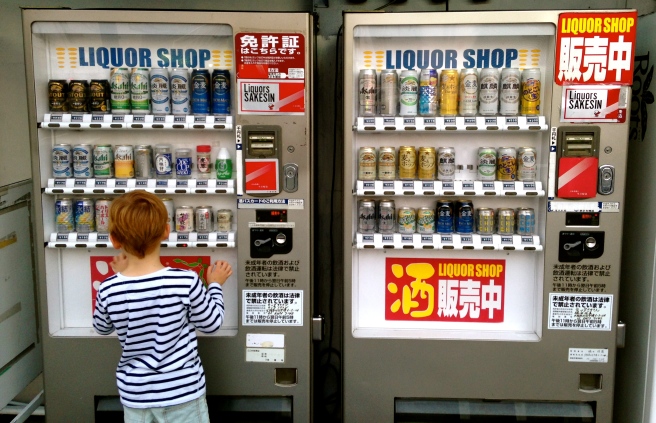
In addition, you can buy many other things in vending machines in Japan, and I am not talking about those vending machines inside service station toilets in which you can buy toothbrushes, condoms, sanitary wear, etc. In Japan there are plenty of vending machines out in the open in places like train platforms and pavements.
These public vending machines target punters needing ice cream, bananas, pots of noodle, ties and used girls’ knickers to mention just a few. The latter (used knickers) have now been banned in Japan, but apparently in the past, people could buy these items in a vending machine. My husband assures me that he hasn’t traipsed around Osaka looking for one that still exists.
I can understand why someone would rather buy a pair of used girl’s knickers in a vending machine that walking into the posh Japanese department store ‘Daimaru’ or even just 7-Eleven and buy them there over the counter. But what I don’t understand is why would a man (I assume a man, given that I don’t think many women would drool over used men’s underwear) would want to buy used knickers. Just go to a fish market or buy a mackerel and keep it in your sock drawer for a week – that should do the trick.
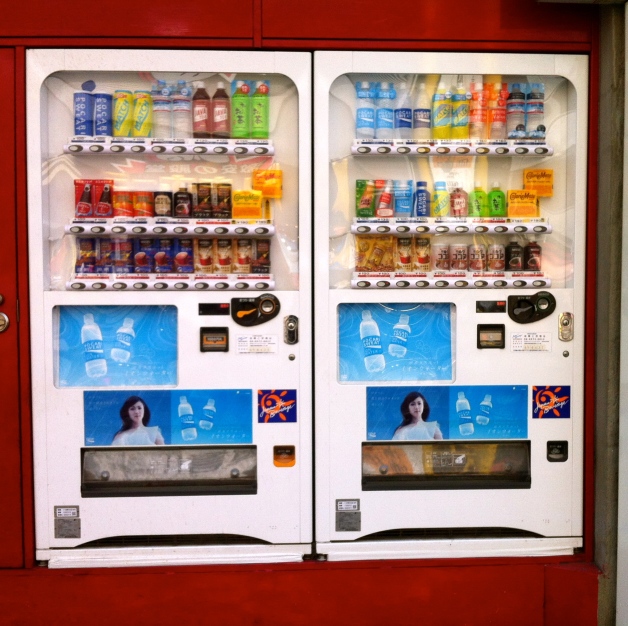
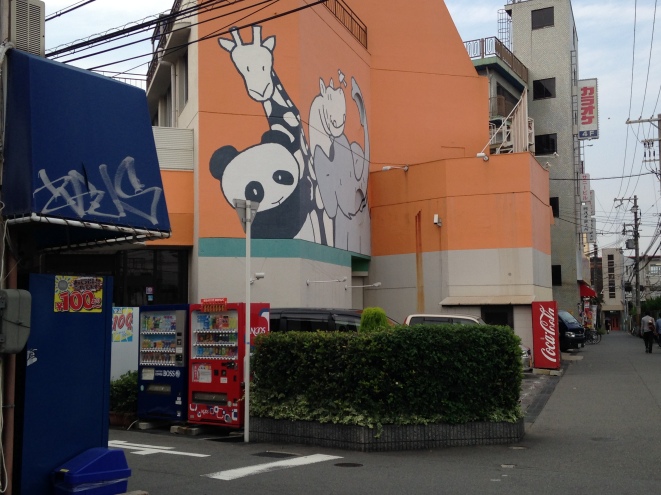
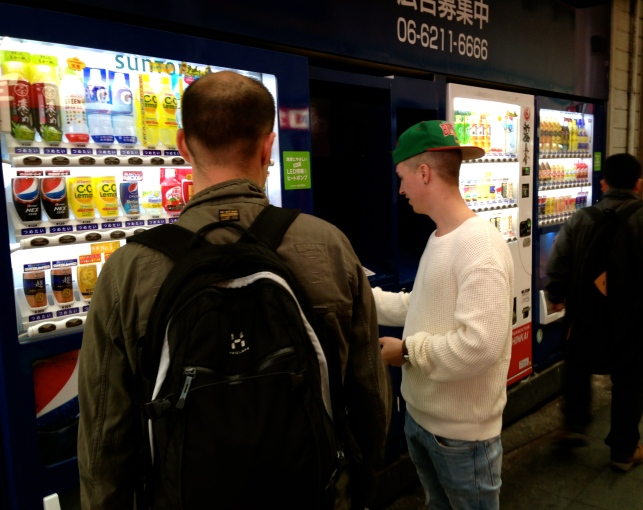
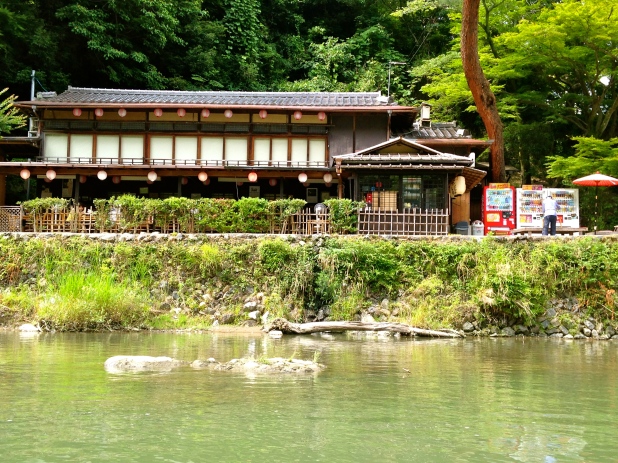
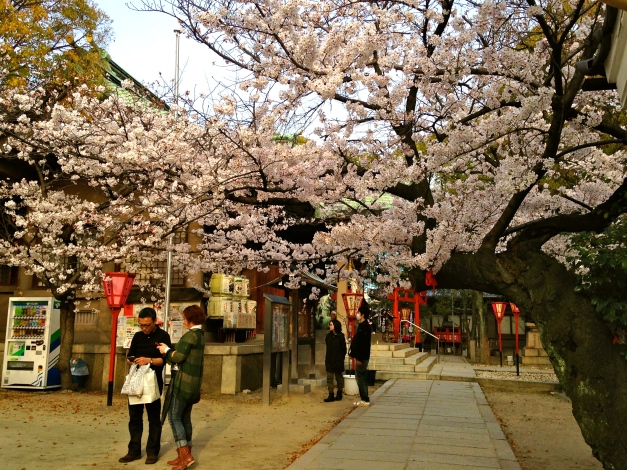
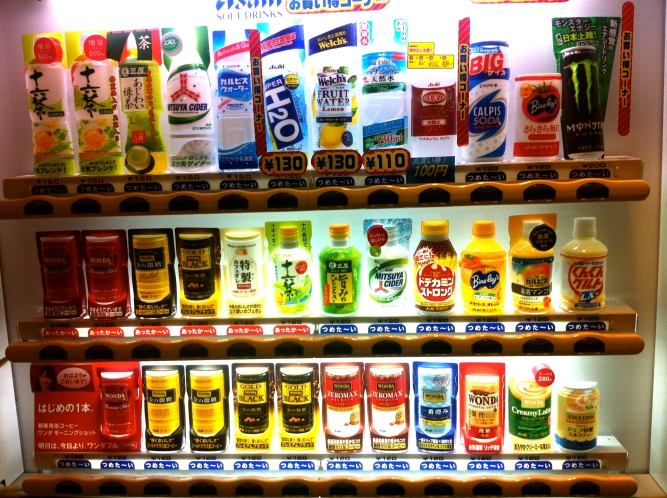
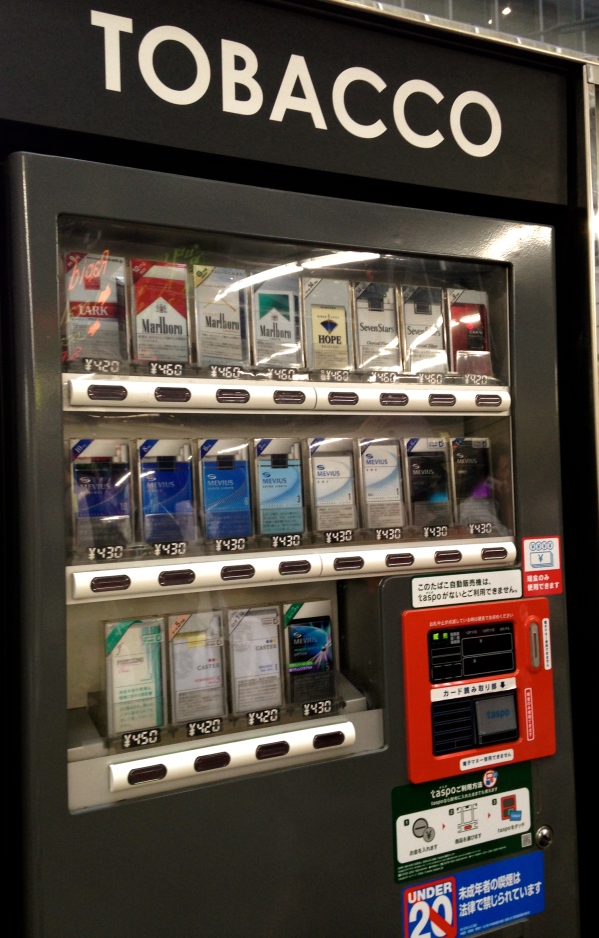
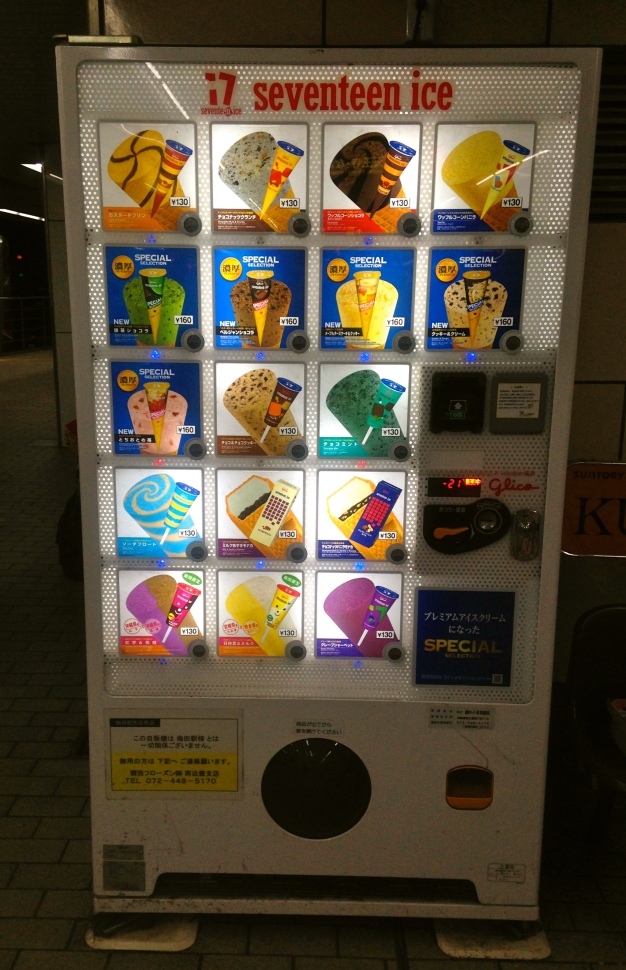
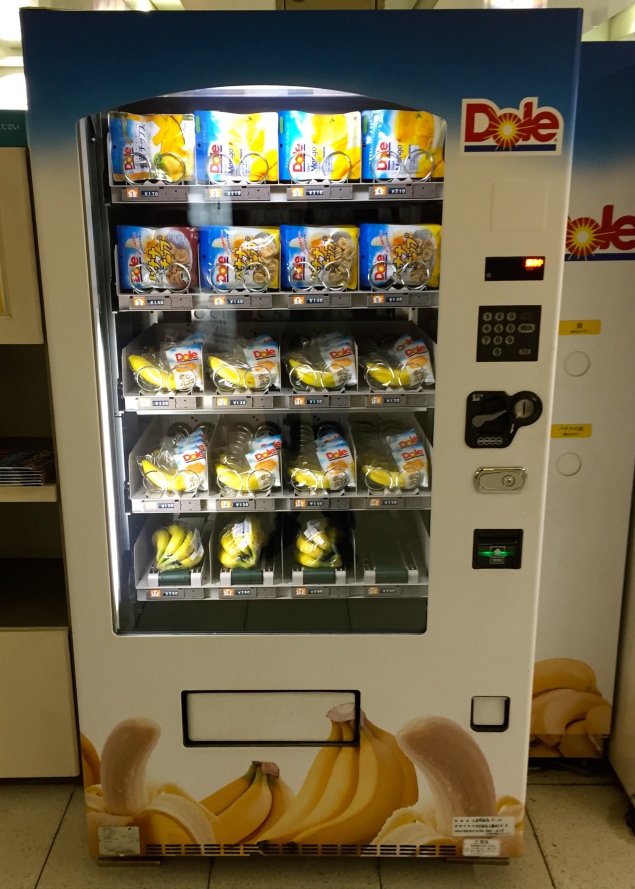
You are very funny!!!
Omg ! Thats grose! Used knickers! Ewww! I went to China and they didnt have as many as Japan but i like the idea of vending machines! Great solution for closed shops at public holidays etc.!
Anna, http://www.dontcrampmystyle.co.uk
Yeah, vending machines are great! but, here in Japan shops are practically never closed – even when there are typhoons or snow, shops stay open 🙂
Yes, I surely can confirm all you mention here, and I have just visited Tokyo for a couple of times. I think I have heard that the vending machines or most of them are owned by the same company or owners than the railway. Could that be so?
You could write about Love Hotels as well.
I’m sorry, I don’t know if the vending machines are owned my the same company as the railways, but I wouldn’t be surprised if they were somehow subsidised. 🙂
I’ve never been to a Love Hotel – I need to do some research before I write about them! 🙂 The good thing is that the area where we live has hundreds of love hotels, so it’ll be easy to do some fieldwork 🙂
I would love to visit Japan and found this post really interesting and funny, it’s such a different culture and looking forward to seeing what’s in those vendin machines when we finally visit oneday
Japan is great! If you even have a chance you should visit Japan. 🙂